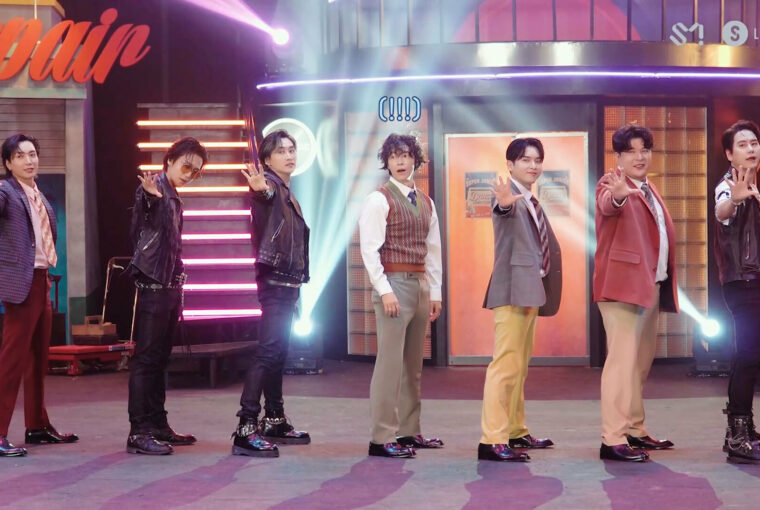If you think the seven-year curse has affected each and every Kpop artist, here are four Kpop groups that broke the dreaded 7-year curse:
Girls’ Generation (2007 – Present)
TWICE may have arguably taken the title “Nation’s Girl Group,” but we cannot deny that the OGs still have it. And there were a lot of girl groups before Girls’ Generation, groups like Fin. K.L, SeeYa, and SM Entertainment labelmate SES dominated public consciousness for a time, but nothing has come close to how SNSD has endeared themselves to the Korean public and how they have stayed relevant all these 15 years. Yes, the group debuted in 2007 and there hasn’t been any major hiccup in their career, save for that one person everybody regards like Bruno in Enchanted: Ms. Jessica Jung. Alas, right on the dot of the group’s 7th anniversary in 2014, Jessica just wasn’t a member of Girls’ Generation anymore. Was she removed? If yes, by who? Did the company give her the boot? Did her groupmates vote her out, Survivor-style? Did she resign from the group to focus on her other career ventures (aka her fashion line and her boyfriend Tyler Kwon)?
Despite that, they still continued with some chart-toppers like Lionheart and Party, then commemorated their 10th year as a group with the double release of All Night and Holiday before Sooyoung, Tiffany, and Seohyun left SM Entertainment (but not the group!) the next year. The remaining members with SME continued to make up the subunit Oh!GG and still topped the charts. And now, all eight members are reuniting with a 15th anniversary release. That this might coincide with Blackpink’s August comeback is giving me an anxiety attack.
BIGBANG (2006- Present)
BIGBANG has been around for more than 16 years. Debuting in 2006, the group quickly became a success and single-handedly built YG Entertainment’s reputation, raising the company’s status among Korea’s top 3 entertainment companies. As with most groups, BIGBANG had its share of controversies, and how! These were some of the biggest scandals in the Korean entertainment industry has been involved in.
Let’s take a quick trip down memory lane to remember them. Let’s see, there was GD’s marijuana use, Daesung’s manslaughter, TOP’s drug case, TOP’s attempt at taking his own life, Seungri’s involvement in the Burning Sun scandal part 1 (the being a front of illegal gambling and drug trade activity), Seungri’s involvement in the Burning Sun scandal part 2 (illegal sexual harassment video trafficking), Seungri’s resignation from the group and the Korean entertainment industry, Seungri’s jail sentence, Seungri’s removal from conscription and transfer to a civilian prison.
when there's people doubting or diminishing bigbang's impact, success and influence just ask them how many kpop groups out there can release a song at midnight after 5 years of hiatus with no promotion and still break records, make colossal numbers and shake the whole industry
— 👻 (@basquiatop) June 19, 2022
If we are to look at the entire history of Korean pop music, only BTS has surpassed the level of BIGBANG’s domestic and international success. Before BTS, BIGBANG was THE representative K-pop group. And based on their latest comeback that only featured the four remaining members, Still Life was an instant hit both at home and abroad. This begs the question, how can a group that has been at the center of so much controversy and involved in so many scandals continue to be loved even by Korean fans, known to be quite a conservative bunch? I guess it’s a mix of really good music and the individual personalities of the members. BIGBANG just never disappoints with their releases. There was never a BIGBANG song that was released with the public going, “Maybe I’ll like it with a few more listens.” Every BIGBANG song simply appealed to listeners. But more than producing earworms and radio-friendly hits, BIGBANG songs are also very artistic. This bleeds to their personalities that just scream artist, not just singers or musicians. They’re eccentric and aspirational but also very relatable at the same time. They keep their distance from the public but have never been reported to be rude, cold, or curt towards fans and “ordinary” folk.
But then, if the group’s latest comeback Still Life is any indication, we may have to wait for years until the next BIGBANG comeback. With TOP leaving YG Entertainment, Taeyang focusing on his family, and GD and Daesung reportedly pursuing solo projects, combined with Still Life’s bittersweet message, it seems that the group will be taking a long but well-deserved breather. Fans may have to deal with the fact that BIGBANG has taken that dreaded word – hiatus, but we’ll take that as there still hasn’t been an official announcement of that more dreaded word, the one that starts with “dis” and ends with “band”.
Shinhwa (1998 – Current)
Hear ye, the gold standard of K-pop groups. Ask any debuting K-pop group about their longevity goals, and the chances are high that they will answer “We want to stay active as long as Shinhwa sunbaenim has.” After all, Shinhwa has not only lasted for a decade, but two decades already, and still running. Yes, the granddaddy of still active first-generation K-pop groups will be marking their silver anniversary, aka 25th, in 2023!
Shinhwa debuted under SM Entertainment in 1998 and has stayed as a complete group, with no member changes. Yep, that’s close to 25 years of no members getting removed or resigning, not even “leaving the company but staying in the group”. After all, the group is self-managed, meaning the group established their own company to manage their careers. This is also basically the reason that the group left SM Entertainment, as the latter offered all members except Dongwan a new contract after their old one was set to expire. The group’s latest release was in 2018, Heart, which commemorated the group’s 20th anniversary with the single Kiss Me Like That, where the group again sported a very sexy but elegant image. We are highly anticipating new releases next year for the group’s 25th year in the entertainment industry!
Super Junior (2005 – Present)
Speaking of long-lasting groups, let us not forget hallyu pioneers Super Junior, a group that made its debut in 2005. Being a group from SM Entertainment, it has been a foregone conclusion that SJ will stay in the business for a very long time. After all, SM Entertainment does not disband groups under them. It usually takes a contract dispute (e.g., H.O.T and Shinhwa) or all members deciding not to continue with their contracts with the company (e.g., f(x)) for the group to “disband”, although you will never see the company issuing any statement that their groups have disbanded. SM issues official statements about their talents being bullied, in a romantic relationship, or even leaving the group (as in the case of Jessica and SNSD), but never about their groups getting disbanded.
SUPER JUNIOR The 11th Album Vol.1 [The Road : Keep on Going]
'Mango' MV Teaser #2
🎧 2022.07.12. 6PM KST#슈퍼주니어 #SUPERJUNIOR#The_Road_Keep_on_Going#Mango pic.twitter.com/pgv4wo5nJO
— SUPER JUNIOR (@SJofficial) July 11, 2022
This has been the case with SJ as well. Super Junior was initially envisioned as Super Junior ‘5, a group with a mix of members who may not sing, rap or dance, but be active in the entertainment business just the same in other capacities (as hosts, actors, etc.) after being in the group for a period, after which they “graduate” after achieving their (or the company’s) desired degree of popularity, much like the original idea for the Pledis girl group After School. So, there was supposed to be a Super Junior 06, Super Junior 07, and so on and so forth with different line-ups depending on which members graduated and which new members get introduced into the group. As such, at the start, you may notice that Shindong did not have lines in the group’s early releases. That’s because Shindong, after debuting with the 05 batch, was supposed to be a comedian. But then the concept of making SJ an annual generation thing fell through, and with the inclusion of Kyuhyun in 2006, Super Junior became a permanent group.
While SJ’s original concept was to have regular lineup changes based on “generation”, the group still had members removed despite the original concept getting a no-go. In the group’s awe-inspiring 17 years, three have left the group, two of which were not the most favorable of circumstances, and one is currently on a very long and extended hiatus, much like the other one who disappeared into the abyss.
From Super Junior Hankyung to PRISTIN Kyulkyung, what's the reason Chinese K-pop idols chose careers in China rather than in Korea? #PRISTIN #WJSN #JooKyulkyung #fx #Kris #Victoria #ChengXiao #EXO #Luhan #Tao #SuperJunior #HanGeng #Hankyung https://t.co/Gft9i9UdWb
— KpopStarz (@kpopstarz) July 11, 2022
First was Chinese member Hangeng, who actually joined the group in the weirdest way. Being Chinese, he was limited to performing on three Korean TV stations. Thus, in some performances, he had to wear as a mask and had to be blended with the backup dancers so as not to attract unnecessary attention. But then, in 2009, after a series of incidents where he felt discriminated against because he is not Korean (e.g., his family getting relegated to cheap seats in a Super Junior concert in Shanghai, being forced to attend and perform on events even though he was sick or injured while Korean members recuperated in the hospital), he just packed his bags, left the group’s dormitory, and went home. As expected, lawsuits got served and in 2011, Hangeng, Yuehua Entertainment (his agency then), and SME finally came to an agreement.
Meanwhile, the case for member Kangin was quite the opposite. It was almost as if Kangin was overly favored by SM Entertainment even when he got involved in very un-idol-like behavior. In 2007, Kangin hosted three(!) variety programs on MBC, but was caught in the middle as a timeslot dispute transpired between the TV station and SM. After SM pulled out Kangin in one program (his hosting sting in Show! Music Core), MBC unofficially banned Super Junior from appearing on their programs. Subsequently, Kangin had to leave the two other programs, both of which got canceled after ratings plummeted after his departure. MBC unilaterally ended the dispute by stating that the ban on SJ was never official and inviting them to host a new program.
As seen in this incident, the reason Kangin got heavily favored by SM, suffice to say was that he was a pretty popular member. He had numerous hosting jobs under his belt, and for some reason, the Korean TV viewing public liked his acerbic hosting style, as he often said a number of off-color comments which can be viewed as bigoted, sexist, racist, and downright offensive. Apart from his activities in SJ, he had a thriving TV career, and was on-demand as a runway model, having walked for renowned designer Andre Kim. First DUI case? SM sent him to finish his military duty as he “reflected on his actions”. Assault case? SM strongly defended him, saying he actually was the one who stopped the fight. Second DUI case? SM managed to settle it. Second assault case? SM managed to sweep matters under the rug, again. But while SM has managed to keep things hush-hush for Kangin, ELFs were not particularly impressed with him anymore and threatened to boycott any SJ comebacks that featured him. Finally, in 2019, after 14 years with the group and two years after this latest brush with the kaw (the second harassment case featuring a woman who was allegedly his girlfriend), he officially left the group.
The third member, Kibum, was another victim of the group’s concept change. As he was under the impression that the group would have the generation/graduation thing going, he figured he would start as a rapper, then later move on to other facets in the entertainment industry, such as acting. But with SM deciding that SJ would be a permanent group, Kibum did not have the flexibility to change his career’s direction as Shindong had. While also realizing he didn’t want to continue as an idol he honestly told SM that he doesn’t want to be involved in any Super Junior work and just ride out the rest of his contract. So he took acting jobs here and there but refused to promote with his group until 2015, when his contract with SM Entertainment finally ended.
Then, finally we have Sungmin, the member eternally on hiatus since getting married. Prior to December 2014 (when he married his then-girlfriend), Sungmin was one of the busiest SJ members. He was present in all SJ comebacks and wrapped up all his commitments on musicals before finally starting his enlistment in March 2015. But yes, before starting his mandatory military duty, he forgot to tell the public that he has gotten married and did it in private. This clandestine action earned the irk of Korean ELFs who started petitions for Sungmin’s removal from SJ and their boycott of any comeback that would include him and Kangin. SM has indirectly acquiesced to these calls, as Sungmin has not joined any SJ comeback since Mamacita, which was in 2014. He has released solo projects though, also under Label SJ.
Meanwhile, SJ has released new material nonstop for 17 years, the latest with nine active members being The Road: Keep on Going, with lead single Mango, to be released on July 12. And we haven’t even talked about the “removed” Super Junior-M members!
Here’s to more years and banging releases from these four evergreen groups.
Featured Image: Super Junior Official Twitter







